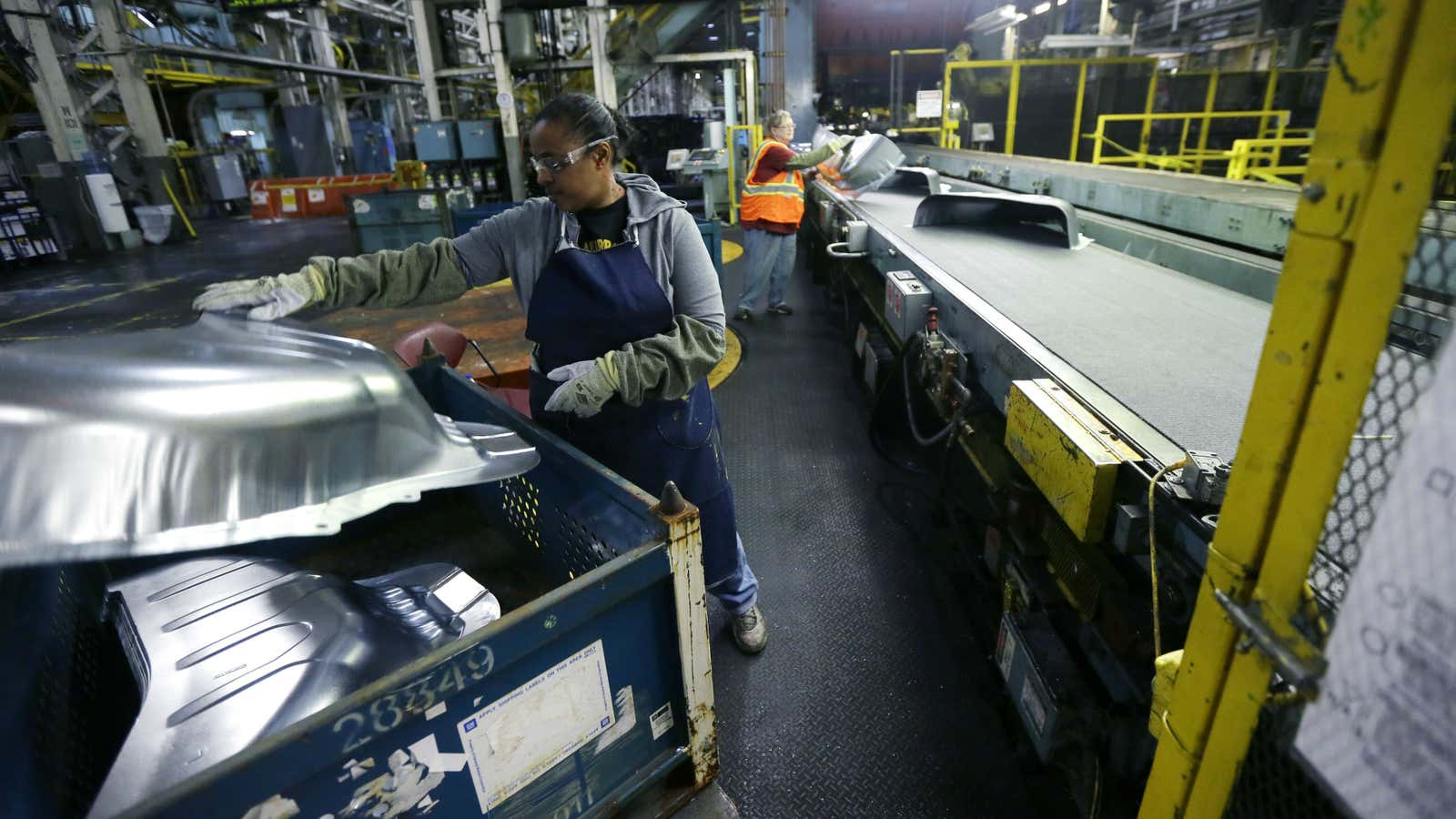Let’s be clear: Jeb Bush’s pronouncement yesterday (July 9) that Americans need to work longer hours to help boost US productivity makes no sense at all, and not just because it’s politically tone-deaf.
While often used as a fancier-sounding word for effectiveness or efficiency, productivity has a specific economic definition. It’s the amount of output per units of inputs such as capital, land, labor, and commodities. Because labor is the easiest to measure of them all, most economists end up talking about labor productivity. So essentially when we talk about US productivity statistics, we’re talking about output—or GDP—per hour worked.
If you just boosted the amount of hours worked, you wouldn’t actually boost productivity. And even if output rises a little bit, it doesn’t necessarily mean it’s worth it. Anyone who has spent the last few hours of a long day listlessly picking at a project knows that productivity can fall as work time increases.
On the other hand, Bush is correct that labor productivity has been soft lately.
For now, that’s fine. The weak productivity readings of late reflect the fact that people have seen a recovery in the amount of hours they’ve worked over the last couple quarters. That’s good. It’s a sign of improvement in the job market.
Over the long term, of course, productivity is seen as a key ingredient of economic growth. The problem is, nobody knows exactly how to raise it. It’s not simply a matter of boosting hours worked. What’s really needed is an increase in so-called total factor productivity, a metric that captures the efficiency of the interplay of investment, labor, and technology.
Unfortunately, total factor productivity is sort of like the economic equivalent of dark matter. It’s in the leftover bits of GDP growth that you can’t explain through inputs of labor and capital. We know it’s there but we can’t actually see it. And politicians certainly can’t juice it simply by persuading people to work longer hours.
